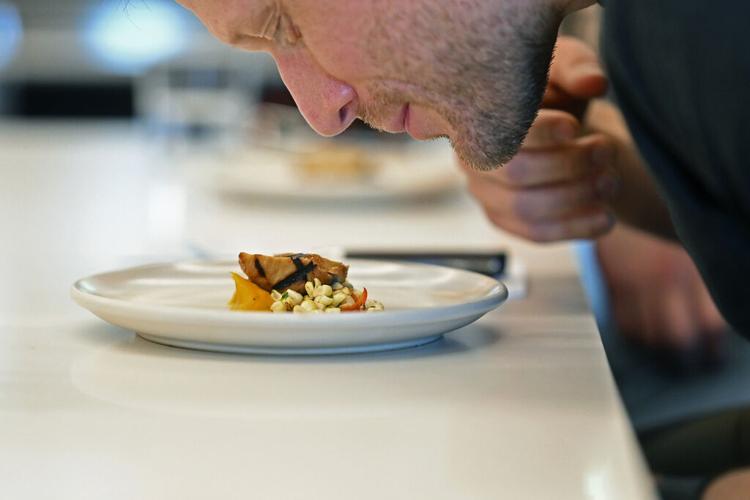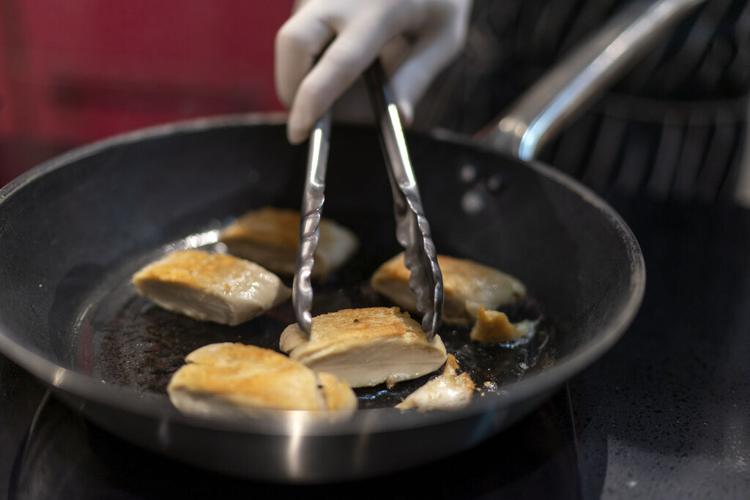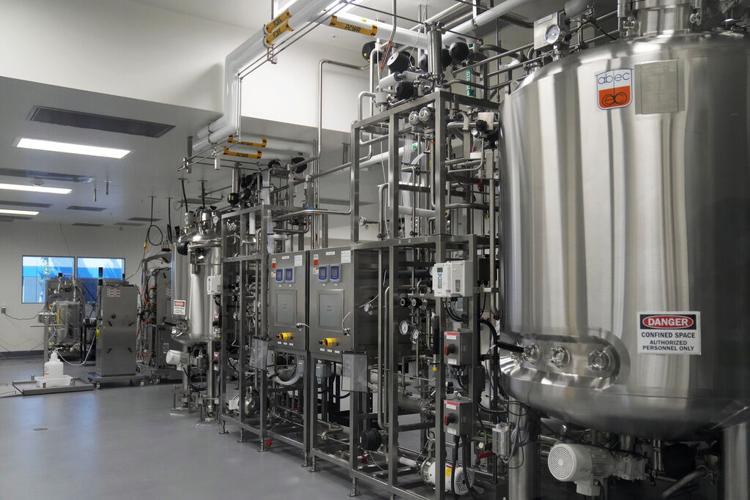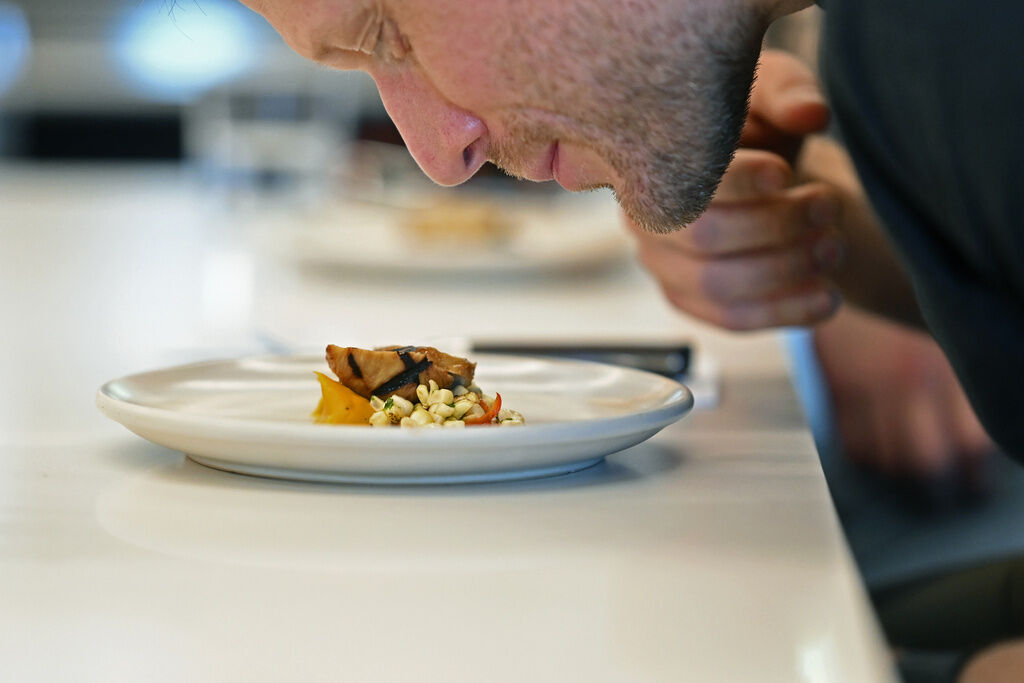PHOENIX — An Arizona lawmaker wants to be sure the next time you buy something called “meat’’ it actually came from from something with at least two legs if not more.
And another wants to keep any “meat” that didn’t come from a live animal off the shelves of Arizona grocers.
House Bill 2244, proposed by Rep. Quang Nguyen, R-Prescott Valley, would make it illegal to intentionally misrepresent a product that is not derived from livestock or poultry as being meat. The language specifically says that term can’t be used if what is being offered was produced in a laboratory from cells cultured from an animal.
Nguyen said the same prohibition would apply if it was a “synthetic product derived from a plant, insect or other source.’’
Nguyen told Capitol Media Services he doesn’t intend to block grocers from offering — and customers from purchasing — such products. Instead, he said, it’s a matter of transparency and disclosure.
But Rep. David Marshall, a Snowflake Republican, wants to go a step farther and keep what he considers faux meats out of Arizona. His HB 2121 would prohibit the sale or production of any “cell-cultured animal product for human or animal consumption.’’
Marshall’s legislation says it is “a matter of statewide concern necessary to protect public health.’’

A chef cooks lab cultivated chicken from GOOD Meat.
The wording also suggests another motive, however — protection of the state’s cattle ranchers. His legislation would allow anyone whose business is “adversely affected’’ by the sale of lab-grown meats to sue to stop the practice and be able to collect damages of up to $100,000.
Marshall declined to discuss his measure, saying he wants to speak to those in the food industry before proceeding.
At least one element of the industry already is weighing in.
“This legislation poses a threat to the free market and individual liberty by eliminating an entire field of scientific research and a vital sector of the economy,’’ said Curt Chaffin. He is the director of policy at the Good Food Institute, a nonprofit that says it is focused “on making plant-based and cultivated meat delicious, affordable and accessible.’’
The issue is pressing because last year the U.S. Department of Agriculture approved the sale of “cultivated’’ meat.

Believer Meats' cultivated lamb product. Believer is one of a growing number of companies making cultivated meat, which can be produced without raising and killing animals.
For the moment, the cost of producing the cell-based proteins has kept it from showing up in grocery stores.
But Upside Foods said it is working with “chef and restaurant partners’’ to make the products available. And GOOD Meat said it is working with chef Jose Andres at his China Chilcano restaurant in Washington, D.C., to offer lab-grown chicken.
Nguyen said he has no problem with Arizonans having an alternative — as long as they know what they are buying.
“The bill doesn’t ban lab meat,’’ he said. “But if it’s lab meat, it needs to be labeled that. If you don’t want to buy lab meat, then don’t buy it. That’s all.’’
In fact, he said he sort of likes the idea of the alternative.
“There are a lot of poor people out there that actually could use lab meat,’’ Nguyen said. As a refugee from Vietnam, he said he knows that people eat what they can.
“Where I came from, I ate dirt,’’ he said. “So that’s how poor I was as an individual growing up. If you wanted to throw lab meat up on my table when I was a little kid growing up in the war, I’d be chewing on that.’’
Marshall, with his proposed ban, is coming at it from a different perspective.
His measure seeks a declaration from the Legislature that Arizona’s cattle ranching industry “is integral to this state’s history, culture, values and economy,’’ going back to territorial days.
It also says there are financial harms that could befall the state if consumers here move from beef to cultured cells.

Machines in the bioreactor suite that creates "lab grown" or "cultivated meat" at Eat Just in Alameda, California.
Ranchers lease more than 8.3 million acres of state trust land. The proceeds of those leases are earmarked for the beneficiaries of the trust, including public education.
Marshall’s legislation declares that the production of lab-grown animal products threatens to harm those beneficiaries.
The amount of money involved, though, is not huge.
According to the most recent report by the State Land Department, leases of state lands brought in $51.1 million in 2023. Most of that was in land leased for commercial purposes, with grazing leases generating less than $3 million.
GFI’s Chaffin said outlawing the sale of lab-grown meat in Arizona would be bad public policy.
“In a time when American farmers and food producers are facing stiff competition around the globe, politicians should not be policing what’s made and sold in Arizona,’’ he said in a written statement. “Consumer demand and science-based food safety requirements should determine what’s sold in our supermarkets, not arbitrary government regulation.’’
GFI also is opposed to Nguyen’s proposal. “By censoring what companies can label their products, states like Arizona stifle the free market and their state’s economy,’’ Chaffin said.
No date has been set to hear either measure.
The US Department of Agriculture has granted permission to a few companies to produce lab-grown meat. But is it safe? First let me explain what lab-grown meat is. Veuer’s Maria Mercedes Galuppo has the story.








